A mother's letter on the passing of her young daughter is a must-read on grief, love and loss
Havi Lev Goldstein left a lifetime of memories in just over two years.
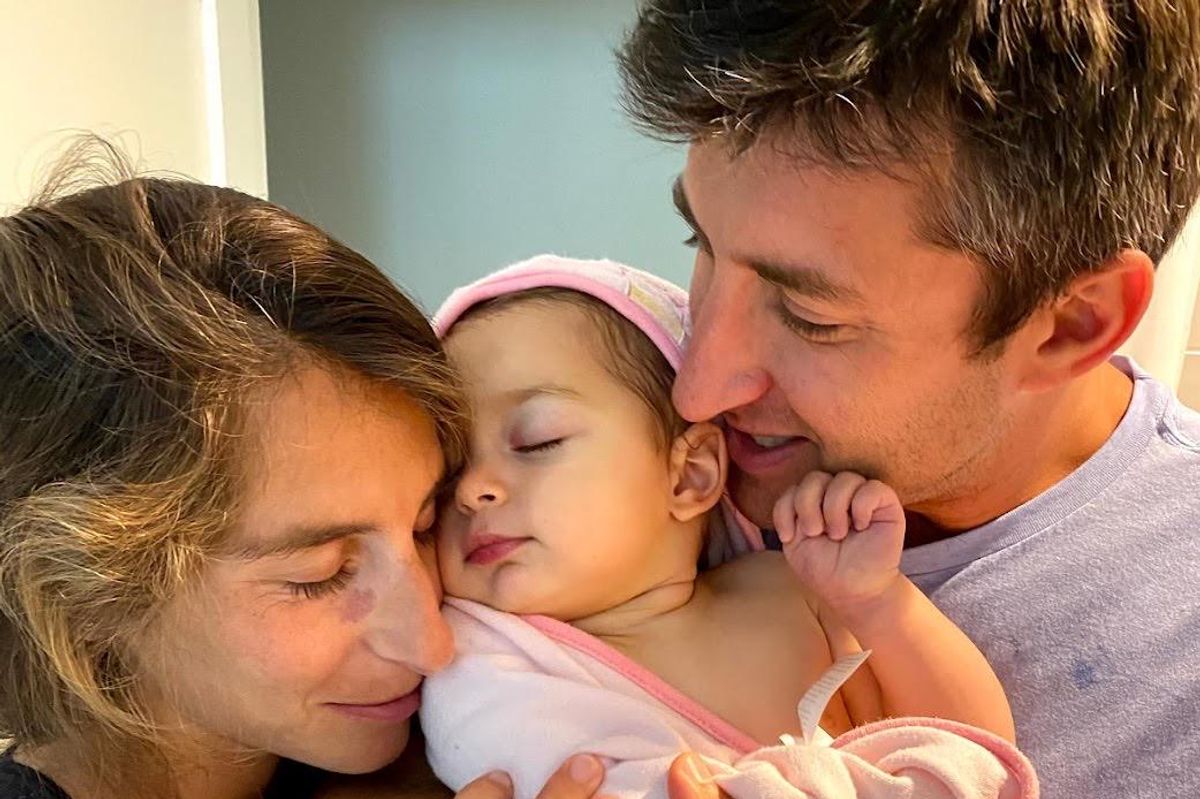
Upworthy is sharing this letter from Myra Sack on the anniversary of the passing of her daughter Havi Lev Goldstein. Loss affects everyone differently and nothing can prepare us for the loss of a young child. But as this letter beautifully demonstrates, grief is not something to be ignored or denied. We hope the honest words and feelings shared below can help you or someone you know who is processing grief of their own. The original letter appeared on 1.20.22. It begins below:
Dear Beauty,
Time is crawling to January 20th, the one-year anniversary of the day you took your final breath on my chest in our bed. We had a dance party the night before. Your posse came over. Aunts, uncles, grandparents, closest friends, and your loving nanny Tia. We sat in the warm kitchen with music on and passed you from one set of arms to another. Everyone wanted one last dance with you. We didn’t mess around with only slow songs. You danced to Havana and Danza Kuduro, too. Somehow, you mustered the energy to sway and rock with each of us, despite not having had anything to eat or drink for six days. That night, January 19th, we laughed and cried and sang and danced. And we held each other. We let our snot and our tears rest on each other’s shoulders; we didn’t wipe any of them away. We ate ice cream after dinner, as we do every night. And on this night, we rubbed a little bit of fresh mint chocolate chip against your lips. Maybe you’d taste the sweetness.
Reggaeton and country music. Blueberry pancakes and ice cream. Deep, long sobs and outbursts of real, raw laughter. Conversations about what our relationships mean to each other and why we are on this earth.
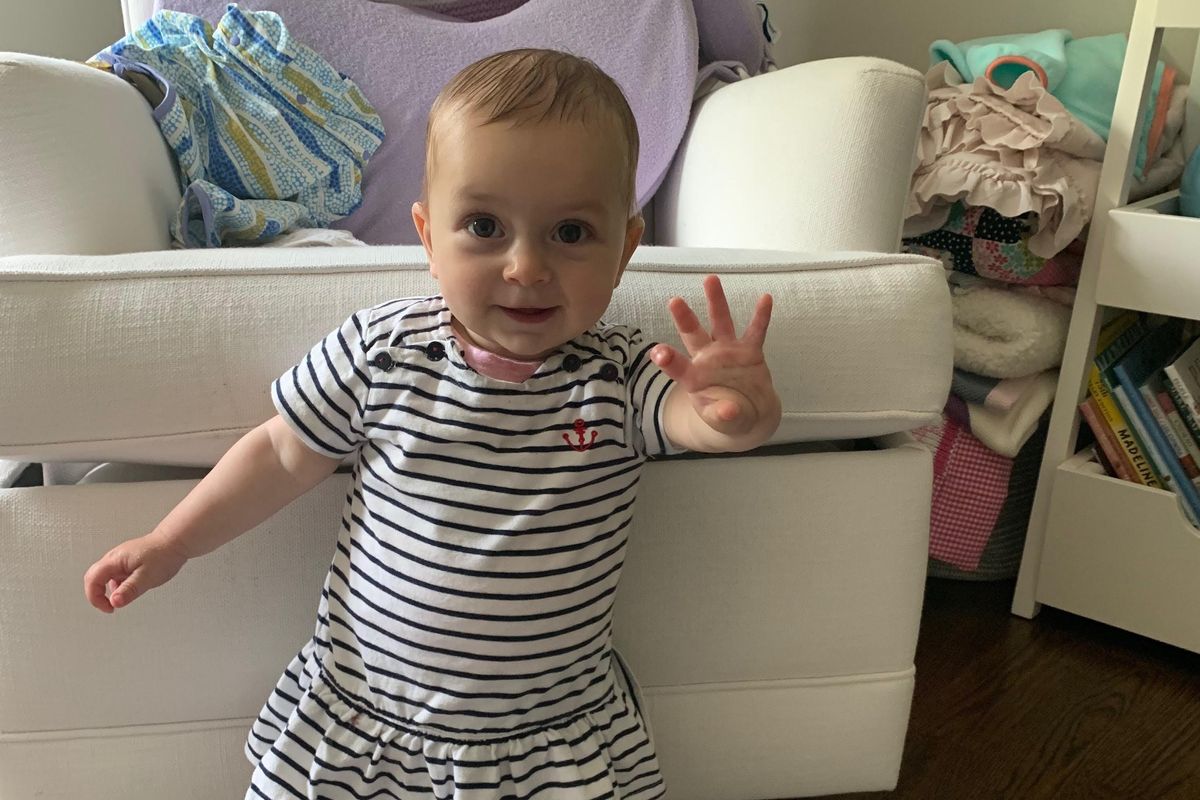
This is grief in our home.
We lost our first-born daughter, Havi Lev Goldstein, on January 20th, 2021, at 9:04am. She died peacefully in our bed, in our arms. She died from a cruel disease called Tay-Sachs, that strips your mind and body of every function over 12-18 months. Havi was two years, four months and sixteen days old when she died.
My husband, Matt Goldstein, and I underwent preconception genetic testing for Tay-Sachs disease. We are both Ashkenazi Jewish, a population that has a higher risk for having a mutation in the gene that causes Tay-Sachs. We took our genetic testing very seriously. My testing results came back showing that I was a carrier; Matt’s results said he was not. Given the autosomal recessive nature of the disease, both parents need to be carriers for the fetus to be at risk of inheriting the disease. Months later, we were pregnant with our first child.
Tragically, Matt received the wrong test, and his carrier status was mis-reported. Matt was in fact, a carrier for Tay-Sachs. 15 months into her life, we learned that our daughter, Havi, was now a victim of this fatal, progressive neurodegenerative disease. In an instant, we were transformed from being not only first-time parents, but now first-time parents of a dying child.
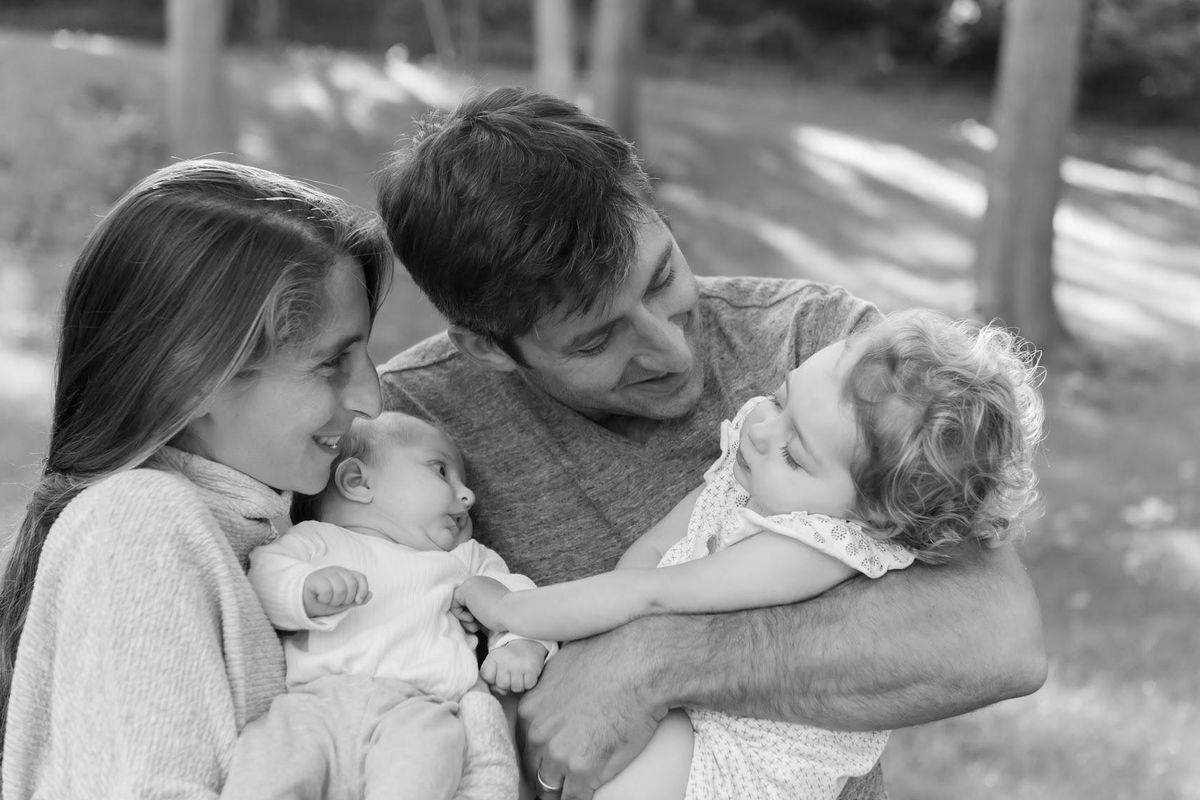
From the date of Havi’s diagnosis, December 17th, 2019, to her death on January 20th, 2021, we followed her lead. She never spoke a word, never walked a single step. But she communicated powerfully through smiles and tears, through the brightness of her eyes and the back-and-forth movements of her head. She loved, deeply. And when you closed your eyes and listened closely, her voice was clear.
Havi taught us that life can be even more beautiful and painful than we ever imagined. And when we live at the edge of that deepest beauty and deepest pain, then everything—our hearts, our world view, our community—will deepen and expand.
We honored Havi’s life every Friday night with family and friends in a celebration that we called Shabbirthday. The word is a combination of Shabbat and Birthday. Havi’s favorite food, the only food that she ever crawled toward, was challah, the braided Jewish bread that we eat every Shabbat. And we knew that her birthdays would be limited to two. That was not enough. We wanted more. So we threw Havi 57 Shabbirthdays before she died. Balloons, cakes, beach walks, fancy dinners, always a challah, and beautiful songs and prayers. We didn’t pretend to be happy on these Shabbirthdays. We weren’t. We were heart broken. We didn’t throw parties to distract or numb the pain. We found moments of beauty and celebration embedded in and between our deepest pain. We knew we needed the love and support of our closest people right there with us, too. And we treated every moment as sacred, not scary. As holy, not superficial.
This is grief in our home.
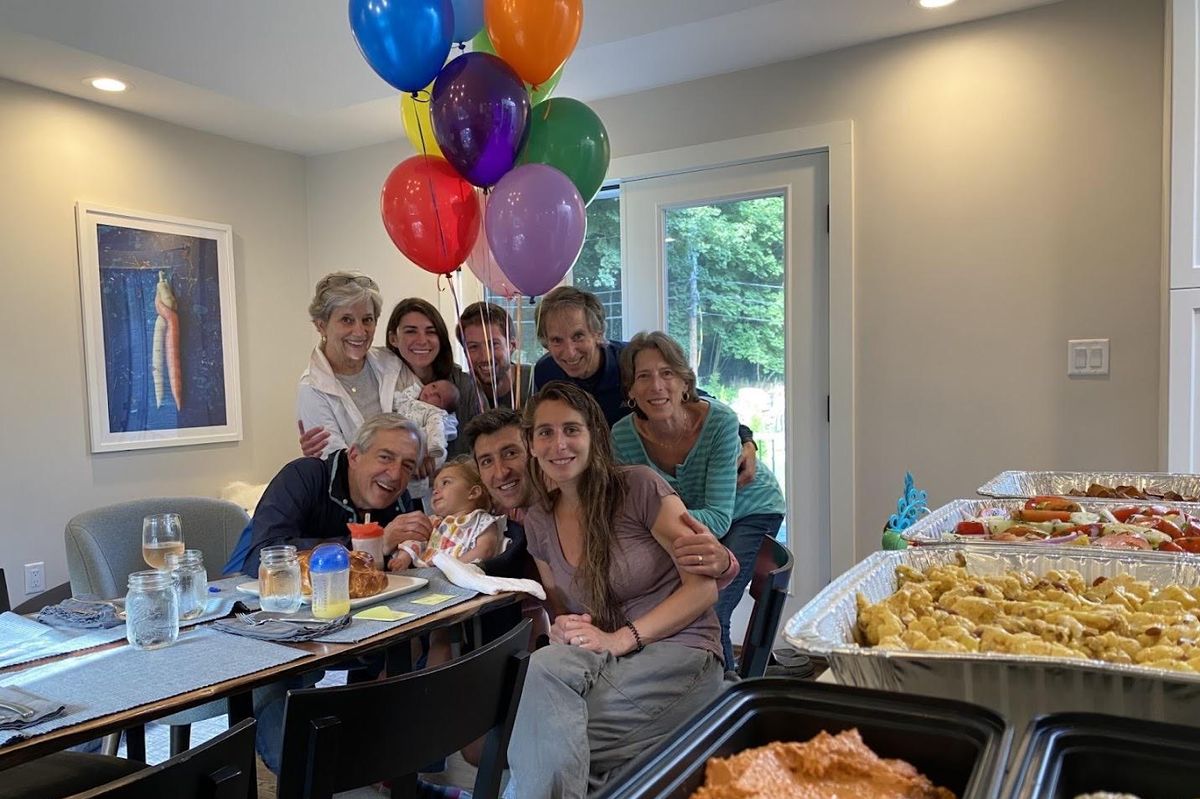
Since Havi’s death, we continue to honor Shabbirthdays every Friday. Now, we read poems, listen to Cole Swindell’s, ‘You Should Be Here’, and close our eyes tightly to try and recall the feeling of her wrapped tightly in our arms. Sometimes it’s hard to breathe. Sometimes I don’t want to open my eyes at the end of the song. And sometimes, I feel okay. Sometimes I can even smile through the song and cuddle with our beautiful younger daughter, Kaia. Whatever the feelings are, however the anguish of grief is manifesting, I pay attention.
Havi’s story is for anyone who has lost the person they love most in this world; for anyone who has watched someone they love lose their beloved; or for anyone who has yet to be touched by their own tragic loss and is open to learning about what it might feel like for them one day.
For me, Havi’s death is not a one-time event. It happens over and over again every moment she is not where she is supposed to be: Picking out a mismatched set of clothes that look adorable anyway; walking into preschool with her little hand gripping my index finger; pausing between the slides and the swings for a few bites of fig bar at the playground; playing with her little sister who looks up in admiration at her god given best friend. The losses are layered and constant. And they will accrue, every day, and on every missed milestone until the day I die. I’m not sure people understand that about losing a young child.
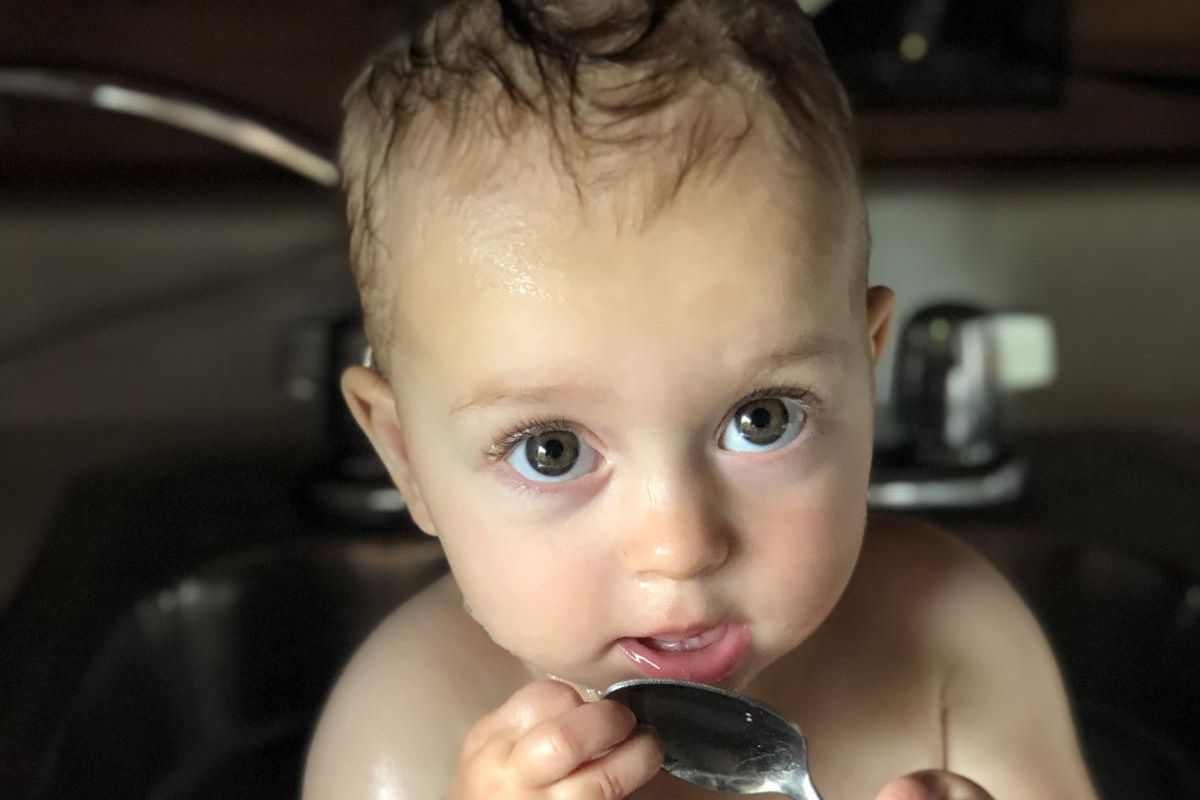
I think that the only way to be okay is to keep inviting our dead into those spaces, to keep them present in those moments where they should be. And not in a delusional way, either. Only in a way that helps us to create new memories and experiences with them since their life on this earth was so tragically short. Relationships don’t have to end when the physical ends. We don’t need to relegate them to the margins. As our therapist, Dr. Joanne Cacciatore puts it: We keep them right in the front row. From that place, they can participate actively in the life they were meant to have. And we can be proud to include them in it. And they can continue to encourage us to live a life of fullness and in service to others.
Even after only one year on this earth without Havi, my relationship with her has undergone profound and deepening changes. In the same way that relationships in the world of the living require immense attention and constant adjustments, so too, do our relationships with our dead. There are moments when I can still feel the touch of Hav’s softest cheeks against mine and there are also moments when I feel far away from her. There are times when I can hear her voice in my head and in my heart and times when the silence is everywhere even though I’m begging for her to show up.
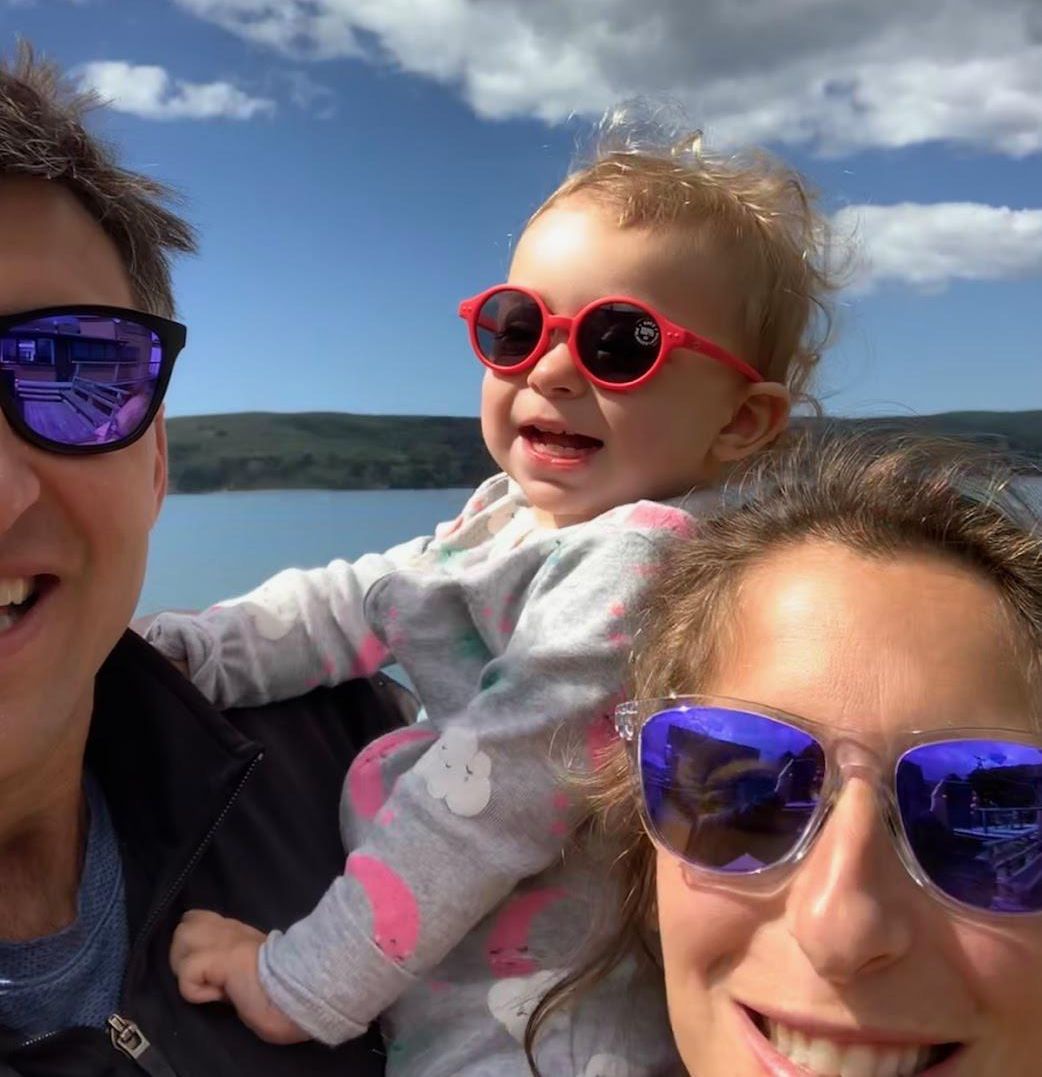
A lot of this journey is a solitary one but it’s made so much easier when other people in our lives keep Havi present. This looks like so many beautiful things: Havi’s name written in the sand; outfits in the color purple; beautiful sunsets over mountains filled with wild flowers; a glass raised ‘To Hav’ before dinner begins; photographs on a bookshelf; text messages on important dates; acts of kindness in the spirit of a beautiful little girl. We do not need to ‘move on’ and we never will. We want to be joined in existing in the space where love and pain coexist for that is the space where we are closest to Hav. We, we all, can be changed forever by the power of loss. Falling into its embrace can make us more powerful, more productive, more alive, and more human. But that growth is ours to discover and cannot be rushed, or forced.
I wish we were kinder to grieving people. I wish we understood that grief is not scary. Losing Havi is the worst possible thing I could have ever imagined as a new mother. It is tragic and unnatural. But what is natural is to want to keep her close to us, to want to make her proud, to want to make the world better in her name, to want other people to know and love her. Those are all natural, quite beautiful, instincts that keep grieving people feeling like they can be okay and maybe even that they can become bigger and better versions of themselves.
I know my relationship with grief, and with Havi, is going to change many more times in my lifetime. I only hope that there will be more safe places to inhabit my suffering when it does.
Children are not supposed to die before their parents. But they do. And they do in this country, they do in all of our neighborhoods. And there are thousands of children, and their parents, who deserve a dance party filled with deep soulful sobs, uncontrollable laughter, and the rhythm of the music keeping us all on our feet for one more day. Most importantly, they deserve to be remembered.

This article originally appeared on 1.20.22

